Computer Assisted Language Learning (CALL) is an intercontinental and interdisciplinary journal which leads the field in its dedication to all matters associated with the use of computers in language learning (L1 and L2), teaching and testing. It provides a forum to discuss the discoveries in the field and to exchange experience and information about existing techniques. The scope of the journal is intentionally wide-ranging and embraces a multitude of disciplines. CALL is dedicated to publishing articles that enhance our understanding of the technology-mediated language learning process. (“Scope of CALL on Scimago” 2012; “About CALL on Taylor & Francis Online,” n.d.)
Open Science Practices: Class Project
How Linguistics Journals Enable Open Access Practices: A (Somewhat) Brief Guide
This blog post examines the policies and practices of 20 leading linguistics journals regarding Open Access. This includes looking at their OA options (e.g., fully OA or hybrid models), article processing charges, licensing terms, and how they communicate about OA to authors and readers. The examined journals were sourced from journal rankings such as the one on Scimago and Google Scholar, where they’re ordered based on metrics like H index, citation counts and the number of published articles during the last year(s). Journals where linguistics are the main or sole focus of research (as opposed to multidisciplinary journals) were prioritized in this process.
The authors are not responsible for the accuracy of the information provided on this page. The information was sourced at various points throughout the summer semester 2025 to the best of their ability. For up-to-date information, please refer to the journal websites.
A brief introduction to Open Access
First and foremost, a brief explanation of Open Access: Open Access (OA) refers to the free, immediate, online availability of research outputs without subscription or payment barriers. It allows anyone to read, download, copy, distribute, or use scholarly articles legally, promoting wider dissemination of knowledge. The importance of OA in academic publishing lies in the enhancing the visibility, accessibility, and impact of research by removing paywalls. It supports the equitable sharing of knowledge worldwide, accelerates scientific progress, and increases citation rates. OA also promotes transparency and public engagement with academic work. For more information on Open Access, its different types and the terms used to describe them, feel free to watch this YouTube video or check out its definition in the FORRT glossary (Parsons 2022).
Video by Clinical Biochemistry by Dr. P. K. Prabhakar, uploaded on YouTube on July 20th, 2023.
🤖 Hybrid Open Access 🤖
Computer Assisted Language Learning
Country: United Kingdom
Publisher: Taylor & Francis
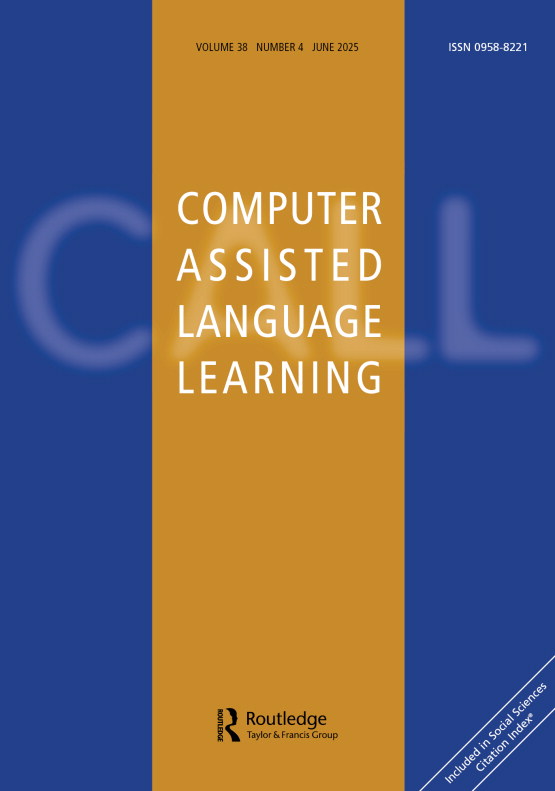
CALL describe themselves as a hybrid open access journal that provides the option to publish open access. They name a few points encouraging authors to publish OA, such as increasing discoverability and readership, reaching new readers and freely sharing their work - however, if you choose to publish OA, you may be confronted with having to pay an Author Processing Charge (APC) unless your institution has an OA agreement/membership with the publisher. The amount of the APC depends on article type and location: For a research article from Germany, for example, one would have to pay 3840€. In case the author decides against publishing OA, there is an embargo period of 18 months before they can share their accepted manuscript on a repository or network, while there’s no embargo period for personal websites.
Assessing Writing
Country: United Kingdom
Publisher: Elsevier Ltd
Assessing Writing is a refereed international journal providing a forum for ideas, research and practice on the assessment of written language. Assessing Writing publishes articles, book reviews, conference reports, and academic exchanges concerning writing assessments of all kinds. The journal focuses on all stages of the writing assessment process, including needs evaluation, assessment creation, implementation, and validation, and test development; it aims to value all perspectives on writing assessment as process, product and politics. The journal is interested in review essays of key issues in the theory and practice of writing assessment. (“About Assessing Writing on ScienceDirect” 2019)
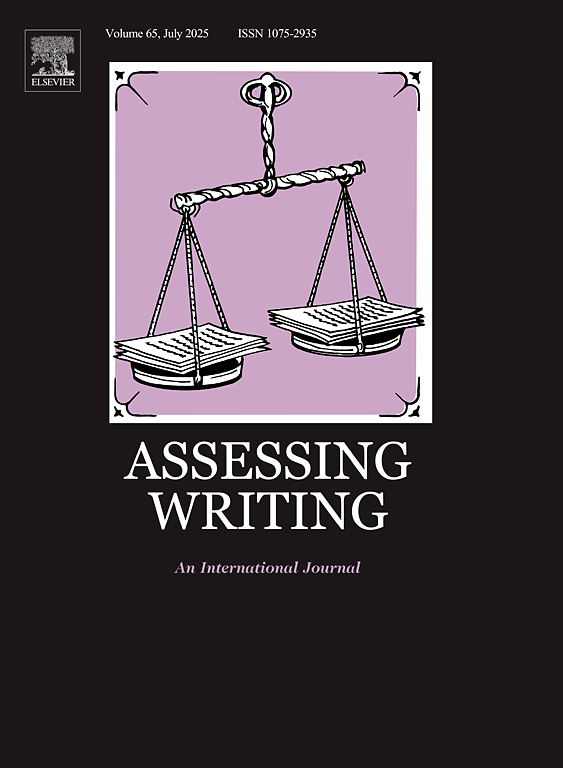
Assessing Writing offers authors two choices to publish their research, OA (with an APC of 3330$ payable by authors or their institution/funder) or the classic subscription-based model without OA publication fee. Subscription articles are are made available to subscribers as well as developing countries and patient groups through Elsevier’s access programs. When publishing under the subscription model, an author can self-archive their accepted manuscript immediately and enable public access from their institution’s repository after an embargo period of 24 months.
Journal of Communication
Country: United Kingdom
Publisher: Oxford University Press
The Journal of Communication is the flagship journal of the International Communication Association and an essential publication for all communications specialists and policy makers. The Journal of Communication concentrates on communication research, practice, policy, and theory, bringing to its readers the latest, broadest, and most important findings in the field of communication studies. Journal of Communication also features an extensive book review section, and the symposia of selected studies on current issues. JoC publishes the best available scholarship on all aspects of communication. Since the journal seeks to be a general forum for communication scholarship, it is especially interested in research whose significance crosses disciplinary and sub-field boundaries. (“About Journal of Communication on Oxford Academic” 2019)
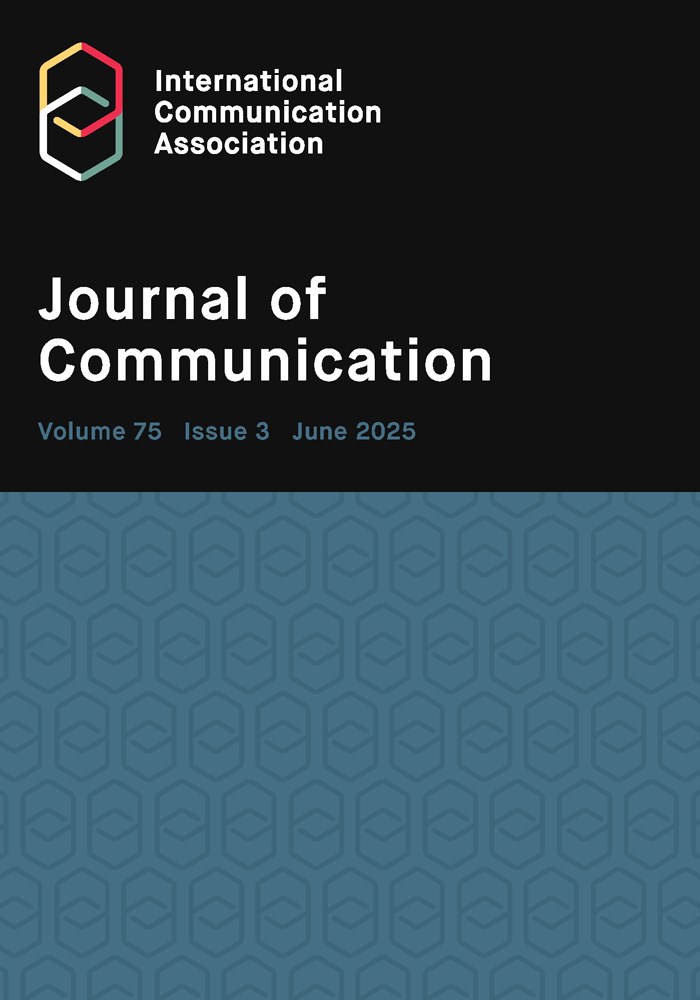
The Journal of Communication supports Open Science Badges to acknowledge open science practices. The three available badges are the Open Materials Badge (acknowledges authors who deposit research materials in an OA repository), the Open Data Badge (acknowledges authors who deposit their data in an OA repository) and the Preregistered Badge (acknowledges preregistered research in an institutional registration system). The journal also offers the option to publish under either a standard license or an OA license, which authors will need to pay an OA charge of 4235$ or have their institution pay it on their behalf. Based on society membership, authors may be eligible for a discount of 20%. If you choose not to publish under an OA license, accepted manuscripts can be shared after an embargo period of 18 months.
Studies in Second Language Acquisition
Country: United Kingdom
Publisher: Cambridge University Press
Studies in Second Language Acquisition is a refereed journal of international scope devoted to the scientific discussion of acquisition or use of non-native and heritage languages. Each volume (five issues) contains research articles of either a quantitative, qualitative, or mixed-methods nature in addition to essays on current theoretical matters. Other rubrics include shorter articles such as Replication Studies, Critical Commentaries, and Research Reports. (“About SSLA on Cambridge Core by Cambridge University Press” 2024)
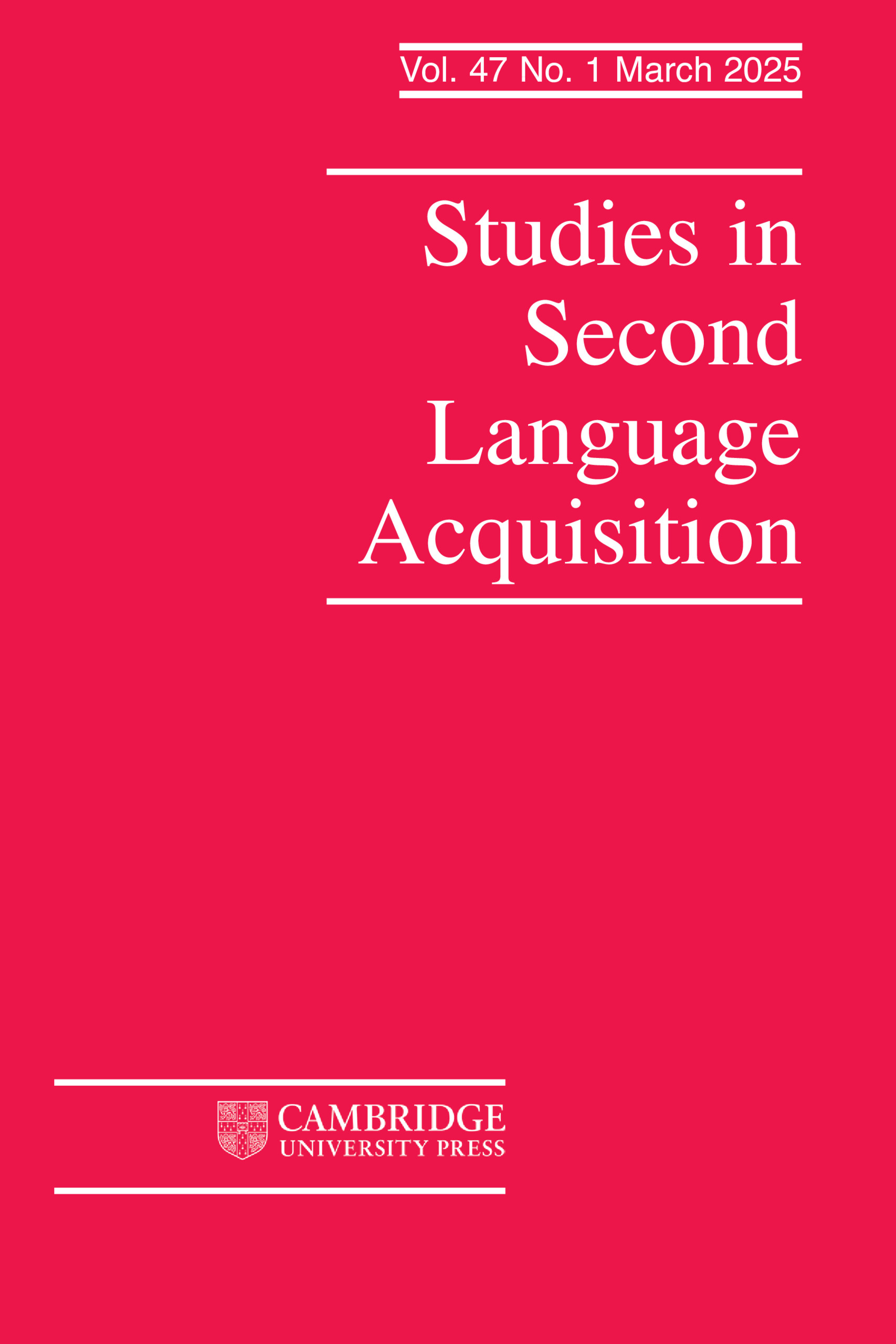
Just like the previous journal, Studies in Second Language Acquisition supports Open Science Badges for research materials, data and preregistration. Authors can choose to publish OA requiring an APC of 3550$ to be paid, although the Cambridge Open Equity Initiative (COEI) also funds OA for corresponding authors from over 100 low- and middle-income countries. Additionally, pre-published versions of articles can be made available in repositories at any time after the article is accepted. There’s also the initiative Cambridge Core Share, which allows a read-only version of a final published PDF to be shared by the author and easily accessed by anyone. From the 39th issue of the journal in 2017 to the 47th volume in 2025 (as well as FirstView articles which have been accepted for publication but haven’t been published yet), there’s been a total of 192 OA articles available.
TESOL Quarterly
Country: United States
Publisher: Wiley-Blackwell
TESOL Quarterly, a professional, refereed journal, was first published in 1967. The Quarterly encourages submission of previously unpublished articles on topics of significance to individuals concerned with English language teaching and learning and standard English as a second dialect. As a publication that represents a variety of cross-disciplinary interests, both theoretical and practical, the Quarterly invites manuscripts on a wide range of topics. (“About TESOL Quarterly on Wiley Online Library,” n.d.)
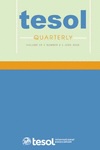
TQ is a subscription journal that offers an OA option. Authors have the option to make their article OA after acceptance and will be subjected to an APC of 2850$ unless a waiver applies. They may post the submitted version of a manuscript to a preprint server, given that they update it with a link to the final published article. According to their submission guidelines, TQ encourages authors to share data and other artefacts supporting their research results by archiving it in an appropriate public repository.
Morphology
Country: Netherlands
Publisher: Springer Netherlands
The aim of Morphology is to publish high quality articles that contribute to further morphological theory and its articulation with linguistic theory in general, or present new and unexplored data relevant to morphological theory. Relevant empirical evidence consists of in-depth analyses of specific languages or comparative, cross-linguistic studies, employing diverse empirical methods, including qualitative analysis of grammatical descriptions, based on speaker intuitions or naturalistic data, as well as quantitative corpus studies, experiments, statistical analysis of morphological datasets, and computational modeling. (“About Morphology on Springer Nature,” n.d.)
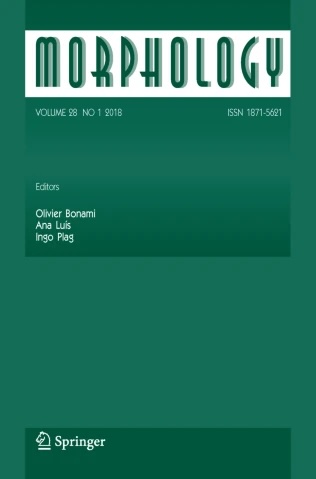
Morphology is a hybrid journal that offers OA publishing options, naming more citations/downloads and a greater impact as reasons for doing so. Once the article is accepted for publication, authors have the option to choose how their article is published: either under the classic subscription publishing model (published articles are made available to institutions and individuals who subscribe to Morphology or who pay to read specific articles) or OA (when an article is accepted for publication, the authors or their funders pay an APC of currently 2490€) so the final version of the published article will be free to read for everyone. Since there is an agreement between the University of Cologne and Springer, authors from this specific institution could have 100% of their APC fees covered. Morphology articles are published OA under a CC BY-NC-ND or CC BY license.
Transactions of the Philological Society
Country: United Kingdom
Publisher: Wiley-Blackwell
Transactions of the Philological Society is the oldest scholarly journal devoted to the general study of language and languages that has an unbroken tradition. We publish evidence-based approaches to all areas of linguistics with a particular focus on the comparative and historical, and inclusive of the widest possible range of languages. We welcome studies of all languages from the perspective of any of the various subdisciplines of descriptive and theoretical linguistics, including phonetics, phonology, morphology, syntax, semantics, pragmatics, and sociolinguistics, from both synchronic and diachronic perspectives, with a particular emphasis on papers which address broader theoretical or methodological questions. (“About TPS on Wiley Online Library” 2018)
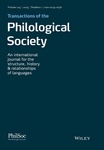
Transactions of the Philological Society offers authors the option to publish their articles Open Access: immediately free to read, download, and share. If the OA option is selected, submissions will be subject to an APC of 2450€ if accepted and published in the journal, but if the author’s institution, funder, or society has a Wiley Open Access Account, all or part of the APC might be covered. Most authors who choose to publish OA in Transactions of the Philological Society can choose between CC BY, CC BY-NC, and CC BY-NC-ND Creative Commons licenses.
Folia Linguistica
Country: Germany
Publisher: De Gruyter Mouton
Folia Linguistica is devoted to empirically based linguistic topics and covers all non-historical areas in the traditional disciplines of general linguistics. The journal welcomes work from various theoretical perspectives, but contributions should be directed towards a general linguistic audience, in other words the argument should be understandable to linguists with other theoretical backgrounds. The domain of interest of Folia Linguistica includes sociological, discoursal, computational and psychological aspects of language and linguistic theory. Other areas of central concern are grammaticalization, language typology, and variation within and across languages. (“About Folia Linguistica on de Gruyter Brill,” n.d.)
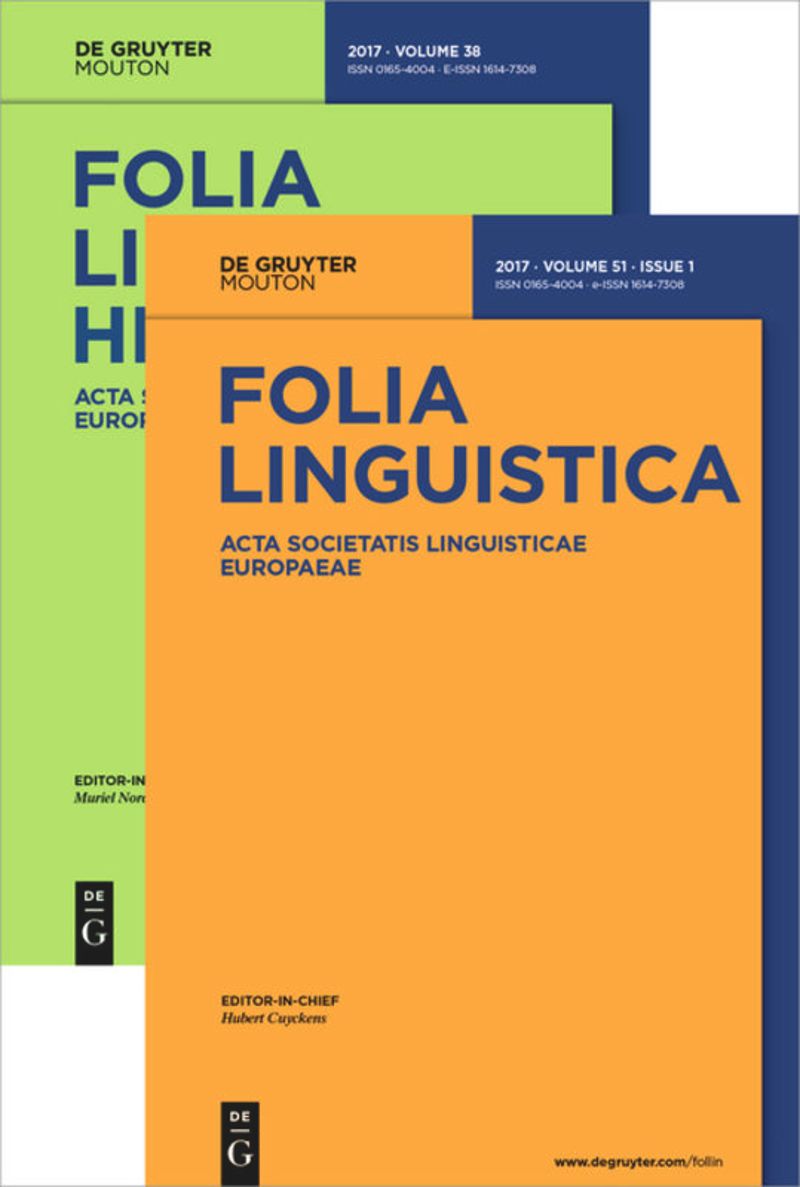
Folia Linguistica follows a hybrid open access model: Authors have the option to publish their article under an OA license (most commonly CC BY 4.0). The standard APC for a hybrid open access article is 2400€, but as usual, corresponding authors from institutions with which De Gruyter has a transformative agreement can publish OA without paying the fee. In terms of sharing articles, De Gruyter’s repository policy allows authors to distribute 30 PDF copies of their published article to colleagues (the PDF has to include the information that it is an author’s copy).
STUF - Language Typology and Universals
Country: Germany
Publisher: De Gruyter Mouton
STUF is a forum for scholarly articles in the realm of linguistic typology and universals research. The journal covers original empirical and/or theoretical studies of the structural diversity and/or of the invariants of human language(s). Equally welcome are contributors to submit papers with a leaning towards areal typology and/or diachronic typology. (“About STUF on de Gruyter Brill,” n.d.)
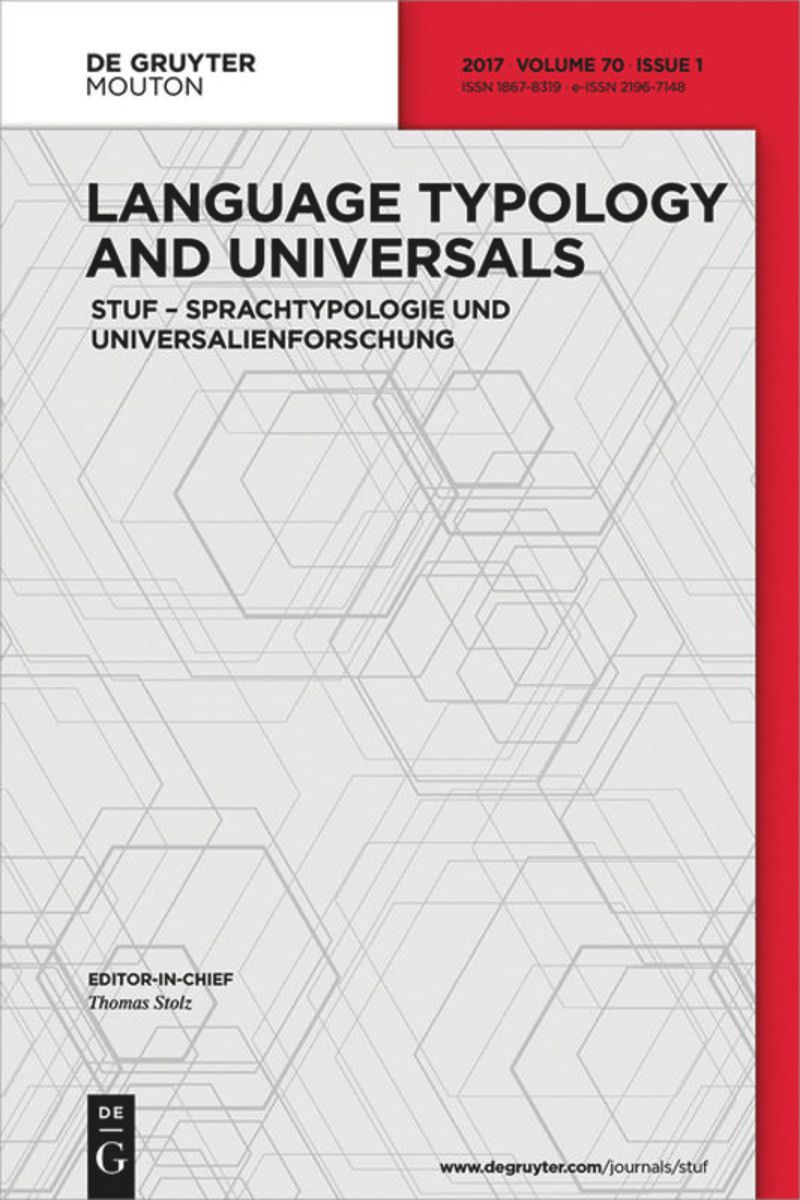
Like the journal Folia Linguistica from the same publisher, STUF is a hybrid OA journal. Again, authors have the option to publish their article under an OA license (most commonly CC BY 4.0). The standard APC for a hybrid open access article is 2000€ unless authors or their institutions have a transformative agreement with De Gruyter - in that case, they can publish OA without paying the fee. 30 PDF copies of their published article (the PDF has to include the information that it is an author’s copy) are available for the authors to distribute to colleagues in accordance with De Gruyter’s repository policy.
🟡 Gold Open Access 🟡
Artificial Intelligence Review
Country: Netherlands
Publisher: Springer Netherlands
Artificial Intelligence Review serves as a forum for the work of researchers and application developers from Artificial Intelligence, Cognitive Science and related disciplines. The Review publishes state-of-the-art research reports and critical evaluations of applications, techniques and algorithms from these fields. Artificial Intelligence Review also presents refereed survey and tutorial articles, as well as reviews and commentary on significant developments from these disciplines. (“About Artificial Intelligence Review on Springer Nature” 2024)
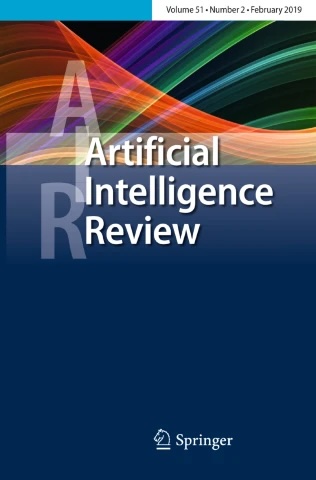
Artificial Intelligence Review is an OA journal, readers do not have to pay for access, subscribe or register to be able to read the publications. The journal backs this decision up with a number of benefits such as more citations and downloads as well as a greater impact. The downside is that authors have to pay an APC for each accepted article, which currently sits at 2590€. The publisher, Springer Nature, does offer agreements that enable institutions to cover OA publishing costs - in the case of the University of Cologne, for example, funding is available for OA publishing in this journal. Artificial Intelligence Review articles are published OA under a CC BY-NC-ND or CC BY license.
Language
Country: United States
Publisher: Linguistic Society of America
Language, the flagship journal of the Linguistic Society of America, publishes peer-reviewed research dealing with issues in linguistic theory and a wide range of subfields in linguistics and related disciplines, language and public policy, and the teaching of linguistics as well as book reviews and notes and commentary of interest to the linguistics community. The journal was established in New York in 1924. Since that time Language has been among the most important and influential journals of linguistics, in general, and of structural and theoretical linguistics in particular. (“About Language on the Journal’s Official Website,” n.d.)
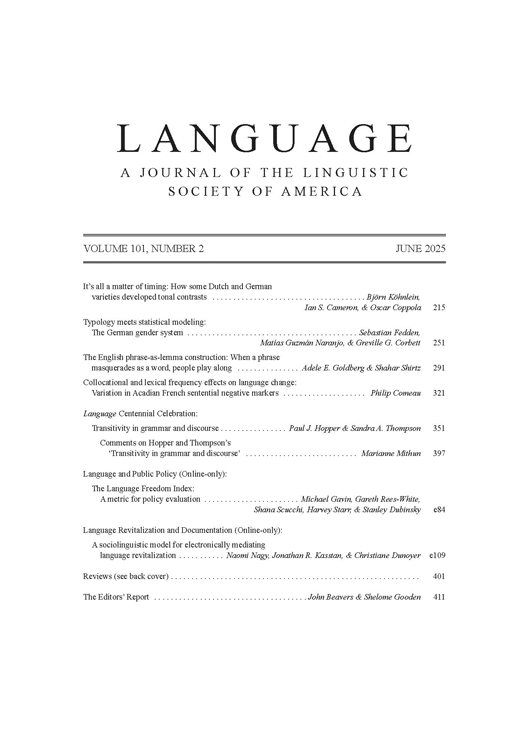
In 2013, the Executive Committee of the LSA made Language an OA journal and after a one-year embargo, all Language content is made available for free to readers everywhere. In addition, individual articles are occasionally made available immediately upon publication, after payment of an article processing charge of 400$ or under special circumstances by agreement with the Editor and the Secretary-Treasurer of the LSA.
💎 Diamond Open Access 💎
Studies in Second Language Learning and Teaching
Country: Poland
Publisher: Adam Mickiewicz University
Studies in Second Language Learning and Teaching is a refereed journal published four times a year by the Department of English Studies, Faculty of Pedagogy and Fine Arts, Adam Mickiewicz University, Kalisz, Poland. The language of publication is English. The journal is devoted to reporting previously unpublished highest quality theoretical and empirical research on learning and teaching second and foreign languages. It deals with the learning and teaching of any language, not only English, and focuses on a variety of topics ranging from the processes underlying second language acquisition, various aspects of language learning in instructed and non-instructed settings, as well as different facets of the teaching process, including syllabus choice, materials design, classroom practices and evaluation. (“About SSLLT on the Journal’s Official Website” 2015)
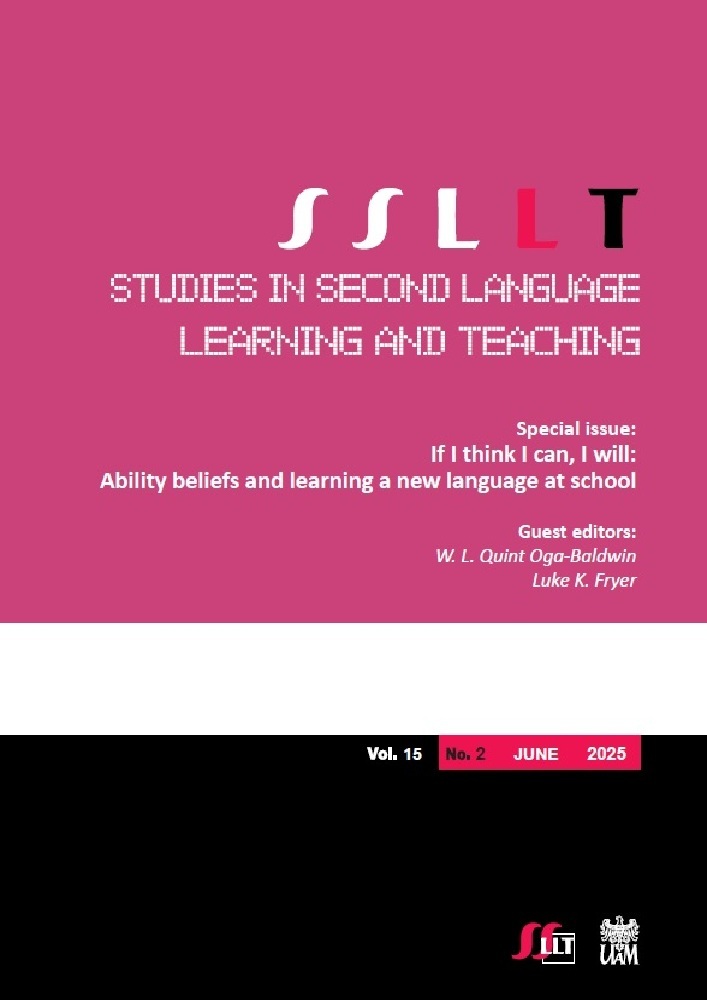
The journal provides immediate OA to its content on the principle that making research freely available to the public supports a greater global exchange of knowledge. Everyone is allowed to freely use articles on the condition that the original authors and source are credited (and information about the Creative Commons license is given). On the same condition, authors of articles may archive post-review or final publisher’s versions (immediately after publication) and distribute them through any medium. There’s no article submission or article processing charges.
Language Teaching
Country: United Kingdom
Publisher: Cambridge University Press
Language Teaching is the essential research resource for language professionals providing a rich and expert overview of research in the field of second-language teaching and learning. It offers critical survey articles of recent research on specific topics, second and foreign languages and countries, and invites original research articles reporting on replication studies and meta-analyses. The journal also includes regional surveys of outstanding doctoral dissertations, topic-based research timelines, theme-based research agendas, recent plenary conference speeches, and research-in-progress reports. A thorough peer-reviewing procedure applies to both the commissioned and the unsolicited articles. (“About Language Teaching on Cambridge Core by Cambridge University Press” 2016)
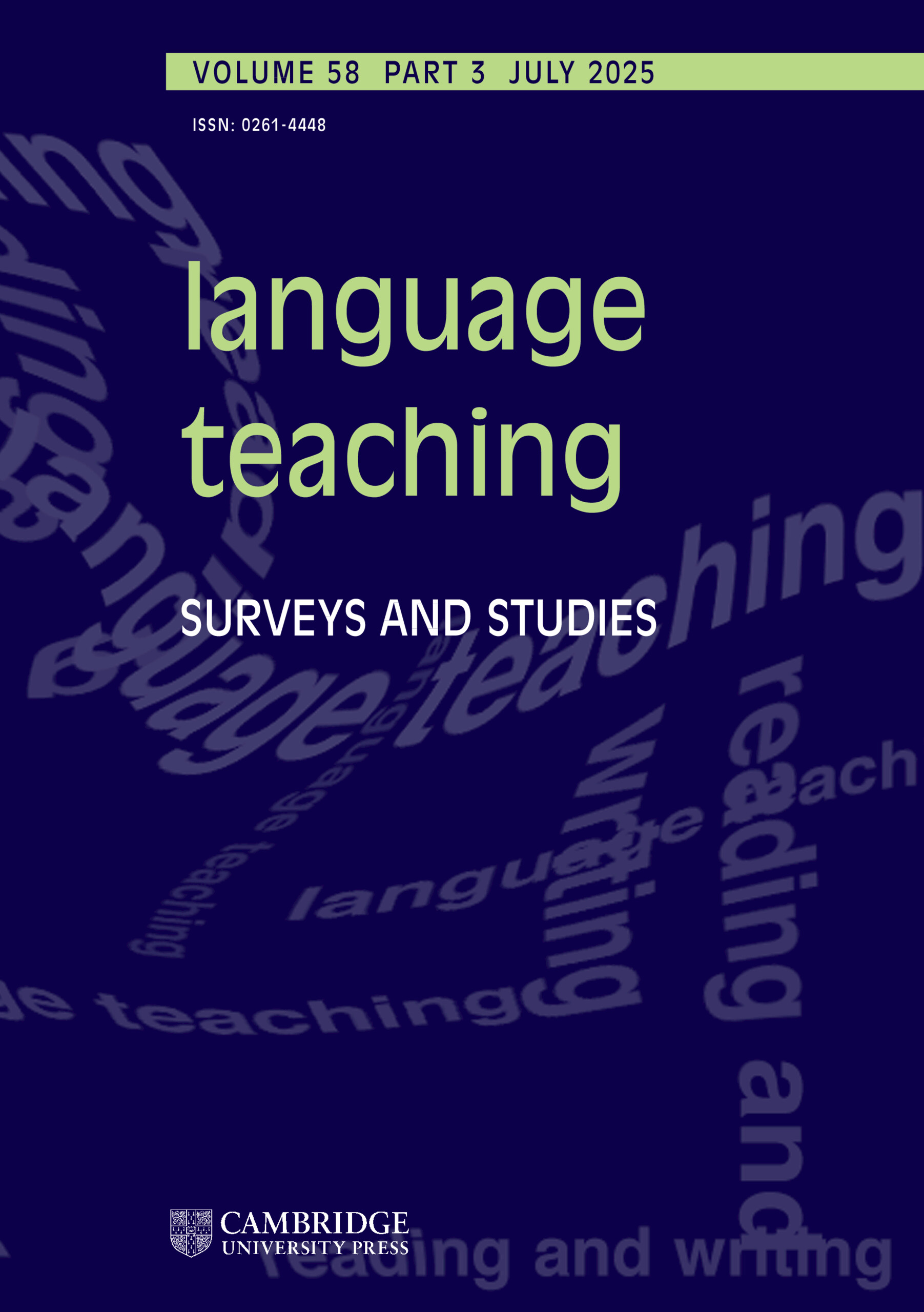
In terms of OA publishing options, Language Teaching follows the same principles as Studies in Second Language Acquisition from the same publisher (Cambridge University Press) and there’s openly accessible FirstView articles too. Having said that, from September 2nd 2025 onward, all research articles accepted for publication in Language Teaching will be OA, published with a Creative Commons license and freely available to read online.
ReCALL
Country: United Kingdom
Publisher: Cambridge University Press
ReCALL is the journal of the European Association for Computer Assisted Language Learning (EUROCALL). It seeks to fulfill the stated aims of EUROCALL as a whole, i.e. to encourage the use of technology for the learning and teaching of languages and cultures, and especially the promotion and dissemination of innovative research and practice in areas relating to CALL including, but not limited to: Applied Linguistics, Corpus Linguistics, Digital Pedagogy, Digital Literacies, Computer-Mediated Communication, Learning Analytics, Second Language Acquisition, and Educational Science. The journal publishes research articles that report on empirical studies (quantitative, qualitative, or mixed methods); provide rigorous meta-analyses or other syntheses or surveys; or contribute to theoretical, epistemological or methodological debates. (“About ReCALL on Cambridge Core by Cambridge University Press” 2016)
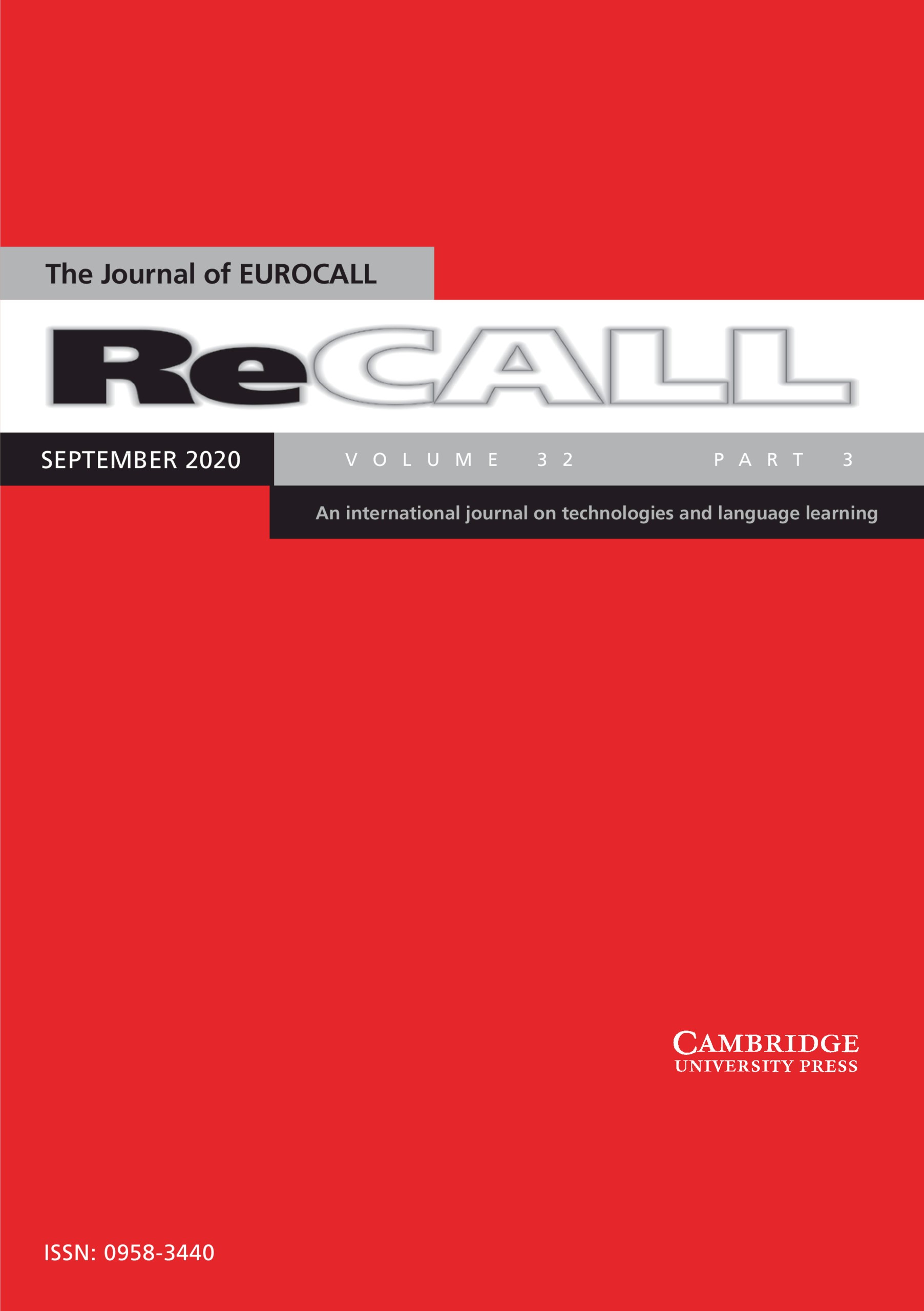
This journal is a fully open access journal and all articles are published OA under a Creative Commons license. Authors can choose any of the six Creative Commons licenses when publishing and depending on the license, anyone can access, redistribute and re-use the article content with attribution. Technically, there is still an APC to be paid for every article, but OA publication is supported by various funding routes to ensure that every author irrespective of their circumstances can enjoy the benefits of OA.
Transactions of the Association for Computational Linguistics
Country: United States
Publisher: MIT Press Journals
TACL invites paper submissions in all areas of computational linguistics and natural language processing. Submissions must describe substantial, original, completed and unpublished work. Submissions will be judged on correctness, originality, technical strength, significance, and relevance to computational linguistics and natural language processing. TACL has the goal of coverage of a broad range of topics. We invite papers in the following four broad categories: theoretical computational linguistics, empirical/data-driven approaches, resources/evaluation, and applications/tools. (“Scope of TACL on Scimago” 2023), (“About TACL on the Journal’s Official Website” 2018)
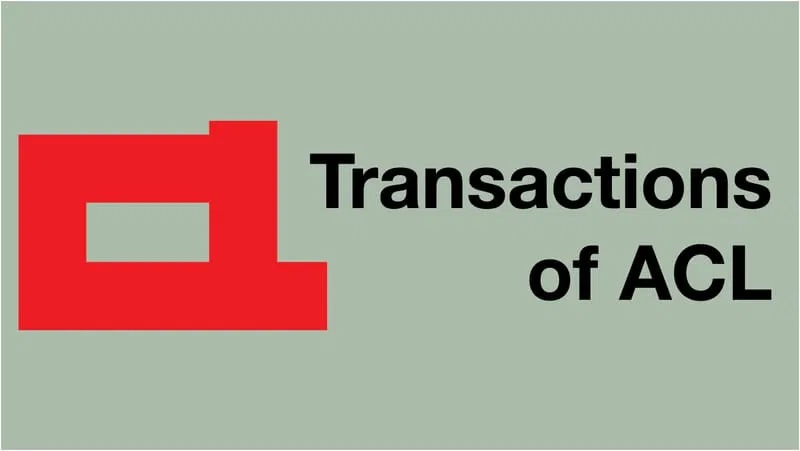
As stated by their OA policy, TACL provides immediate OA to its content on the principle that making research freely available to the public supports a greater global exchange of knowledge. TACL imposes neither author processing charges nor submission charges.
Journal of Linguistics
Country: United Kingdom
Publisher: Cambridge University Press
The Journal of Linguistics is concerned with all branches of theoretical linguistics. Preference is given to original Research Articles which present analyses or generalisations based on sound empirical work, which results in making a clear contribution to current debate in theoretical linguistics. Papers should be accessible to non-specialist linguists with an interest in the paper’s topic. The language of submission and publication is English. (“About Journal of Linguistics on Cambridge Core by Cambridge University Press” 2023)
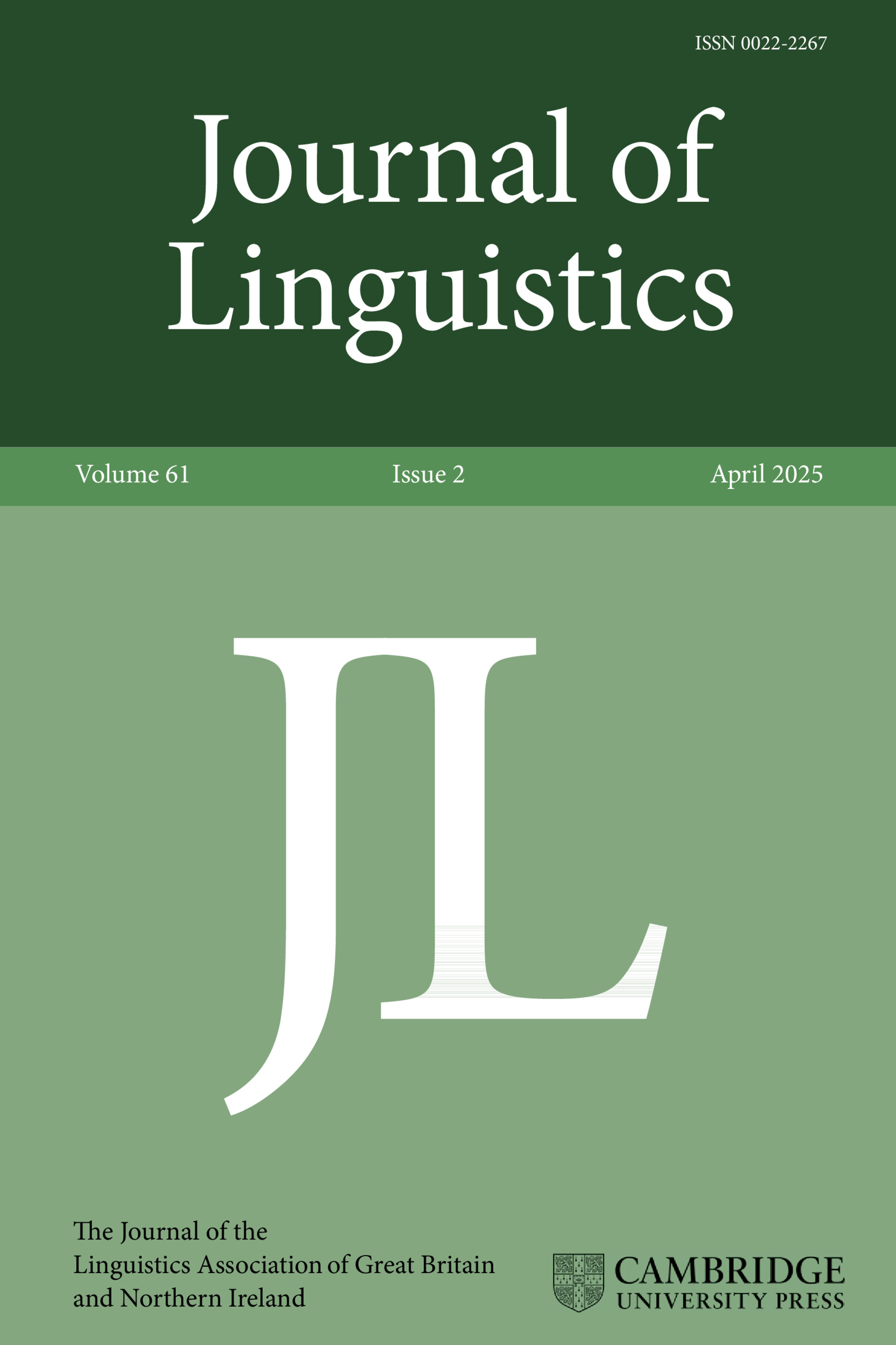
The Journal of Linguistics is an OA journal. All research articles accepted for publication in the Journal of Linguistics from 1st February 2024 are open access, published with a Creative Commons license and freely available to read online. The costs of OA publication will be covered through agreements between the publisher and the author’s institution, payment of APCs for those with third-party funding, or else waived entirely, ensuring every author can publish and enjoy the benefits of OA.
Linguistics
Country: Germany
Publisher: De Gruyter Mouton
Linguistics publishes articles addressing research questions of current or general relevance that make a significant contribution to our understanding of human language as a system of communication or a cognitive, social and historical phenomenon. This includes aspects of grammatical organization (phonetics, phonology, morphology, syntax) as well as questions of meaning and use (semantics, pragmatics, discourse). Studies may deal with linguistic systems as instantiated in speaking, signing, writing and other modes of communication, as well as the language users themselves and their communities (e.g. psycholinguistics, sociolinguistics). The focus may be on one or several languages, the perspective may be synchronic or diachronic, the methodology may be qualitative or quantitative, and the approach may be exploratory or confirmatory. (“About Linguistics on de Gruyter Brill,” n.d.)
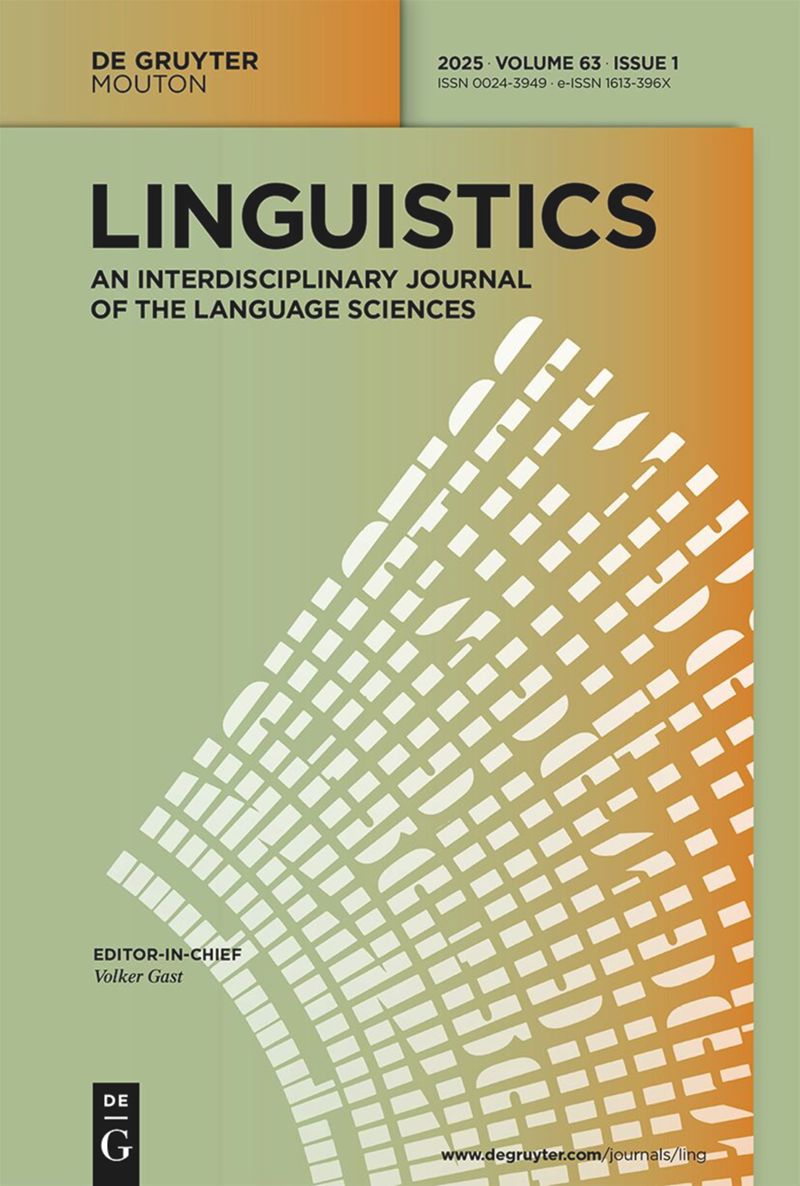
OA from 2022: “Starting with volume 60 (2022), Linguistics is transformed into a Diamond OA journal thanks to our subscribers participating in the Subscribe to Open (S2O) project. All current content will be published under a Creative Commons License (CC BY 4.0) at no cost to authors and will be freely available to readers. All authors retain copyright, unless – due to their local circumstances – their work is not copyrighted.”
Linguistic Typology
Country: Germany
Publisher: De Gruyter Mouton
Linguistic Typology provides a forum for all work of relevance to the study of language typology and cross-linguistic variation. It welcomes work taking a typological perspective on all domains of the structure of spoken and signed languages, including historical change, language processing, and sociolinguistics. Diverse descriptive and theoretical frameworks are welcomed so long as they have a clear bearing on the study of cross-linguistic variation. We welcome cross-disciplinary approaches to the study of linguistic diversity, as well as work dealing with just one or a few languages, as long as it is typologically informed and typologically and theoretically relevant, and contains new empirical evidence. (“About Linguistic Typology on de Gruyter Brill,” n.d.)
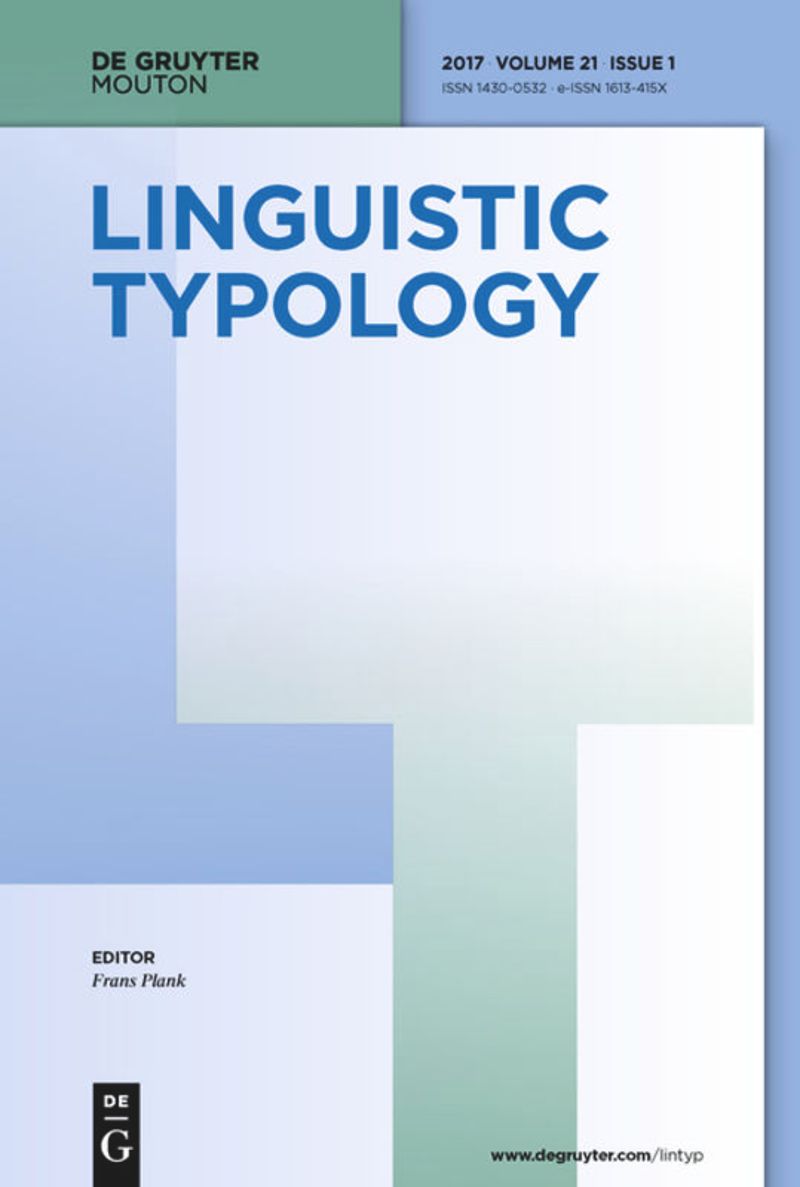
OA from 2024: “Starting with Volume 27 (2024), Linguistic Typology is transformed into a Diamond OA journal thanks to our subscribers participating in the Subscribe to Open (S2O) project. All current content will be published under a Creative Commons License (CC BY 4.0) at no cost to authors and will be freely available to readers. All authors retain copyright, unless – due to their local circumstances – their work is not copyrighted.”
Semantics & Pragmatics
Country: United States
Publisher: Linguistic Society of America
While the core target audience of Semantics & Pragmatics is academic linguists, we also publish material by, or of relevance to, philosophers, psychologists, and computer scientists. Papers must include new results of interest to those working in semantics and pragmatics, and must demonstrate clear significance for theoretical development of those areas. Provided the work meets those criteria, we welcome both submissions of papers on core topics in semantics and pragmatics, and submissions of interdisciplinary papers involving work on syntax, phonology, psycho-linguistics, text and corpus studies, discourse and conversation analysis, computational semantics, the lexicon, historical linguistics, cross-linguistic typology, logic, and philosophy of language. (“About Semantics & Pragmatics on the Journal’s Official Website” 2012)
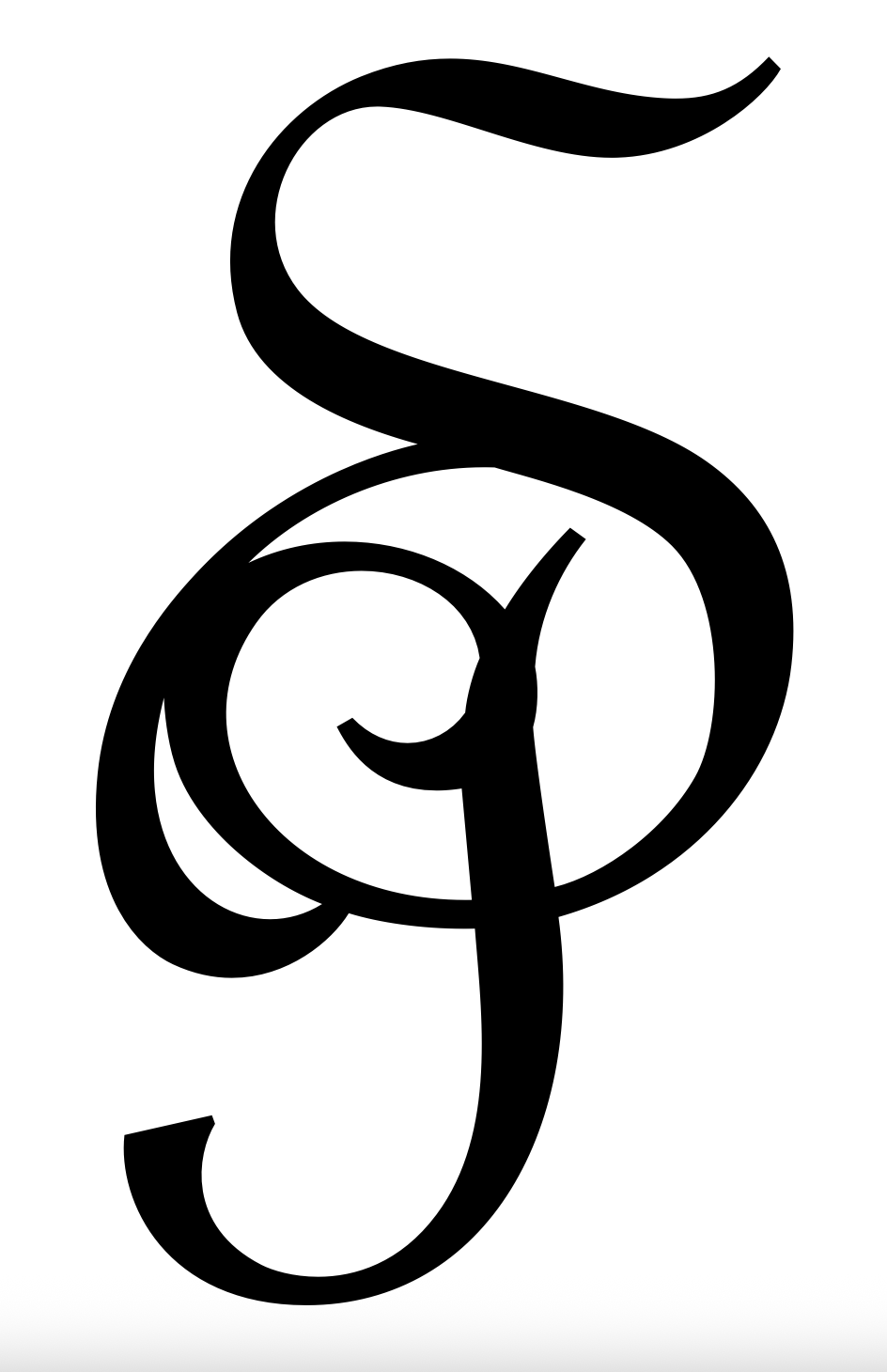
As their OA policy states: Semantics & Pragmatics is a fully open access journal. All content is freely and immediately accessible to readers under a liberal CC BY license. The journal is supported by the Linguistic Society of America, the Massachusetts Institute of Technology, and the University of Texas. Authors do not pay publication charges (APCs) nor submission charges. Authors retain full copyright and all rights of reuse. S&P even allows text mining and other ways of accessing and using the content.
European Journal of Applied Linguistics
Country: Germany
Publisher: De Gruyter Mouton
The European Journal of Applied Linguistics (EuJAL) focuses on the particular concerns of applied linguistics in European contexts, both by addressing problems that are typically relevant for the linguistic situation in Europe, from those on the level of the EU as a pan-national body down to the level of the individual, and by examining topics broached by or discussed in European applied linguistics in particular. (“About EuJAL on de Gruyter Brill,” n.d.)
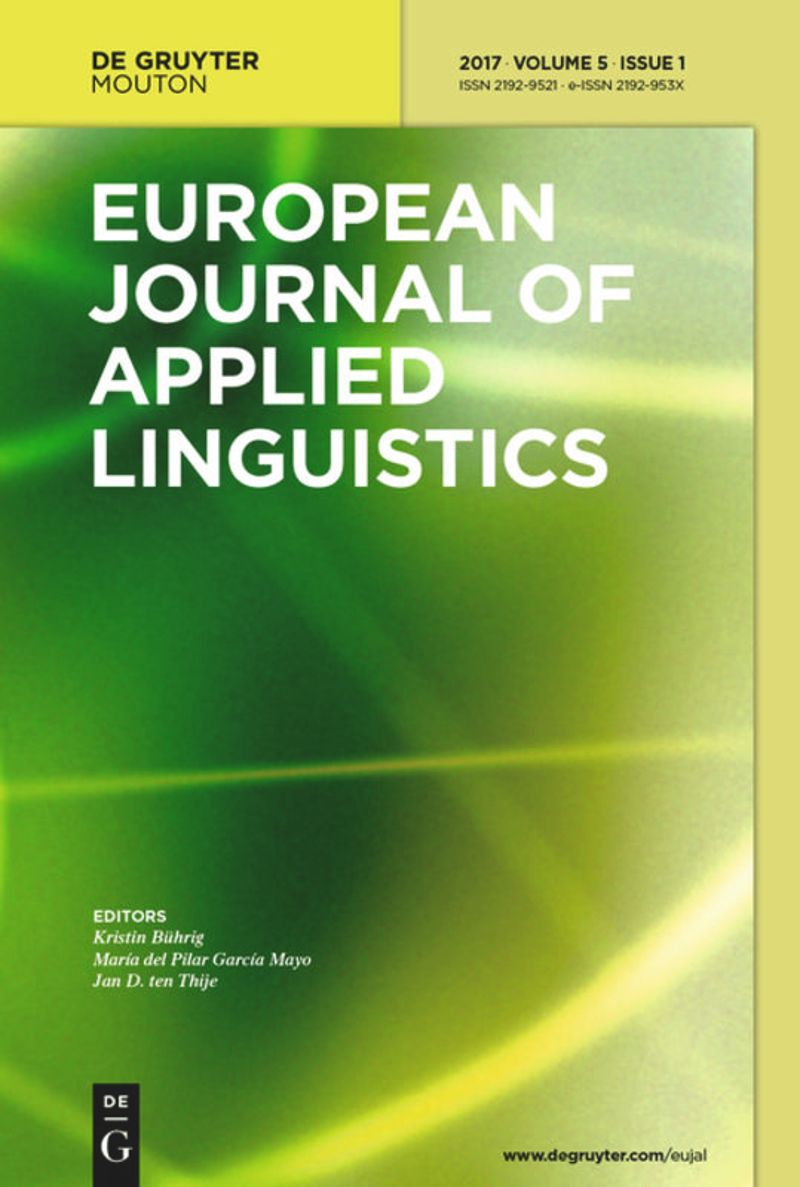
Following the announcement on their website, European Journal of Applied Linguistics will be transferred to open access on a year-by-year basis (starting 2025). All articles will thus immediately appear under the Creative Commons license CC BY. There will be no publication costs for the authors. The OA transformation is based on Subscribe-to-Open, an alternative model that enables the full OA transformation of journals through the continuation of existing subscriptions. The prerequisite for successful transformation is that subscriptions are continued to the same extent as before. For authors who are looking to share their research directly, the same repository policy as for Folia Linguistica applies here as well.
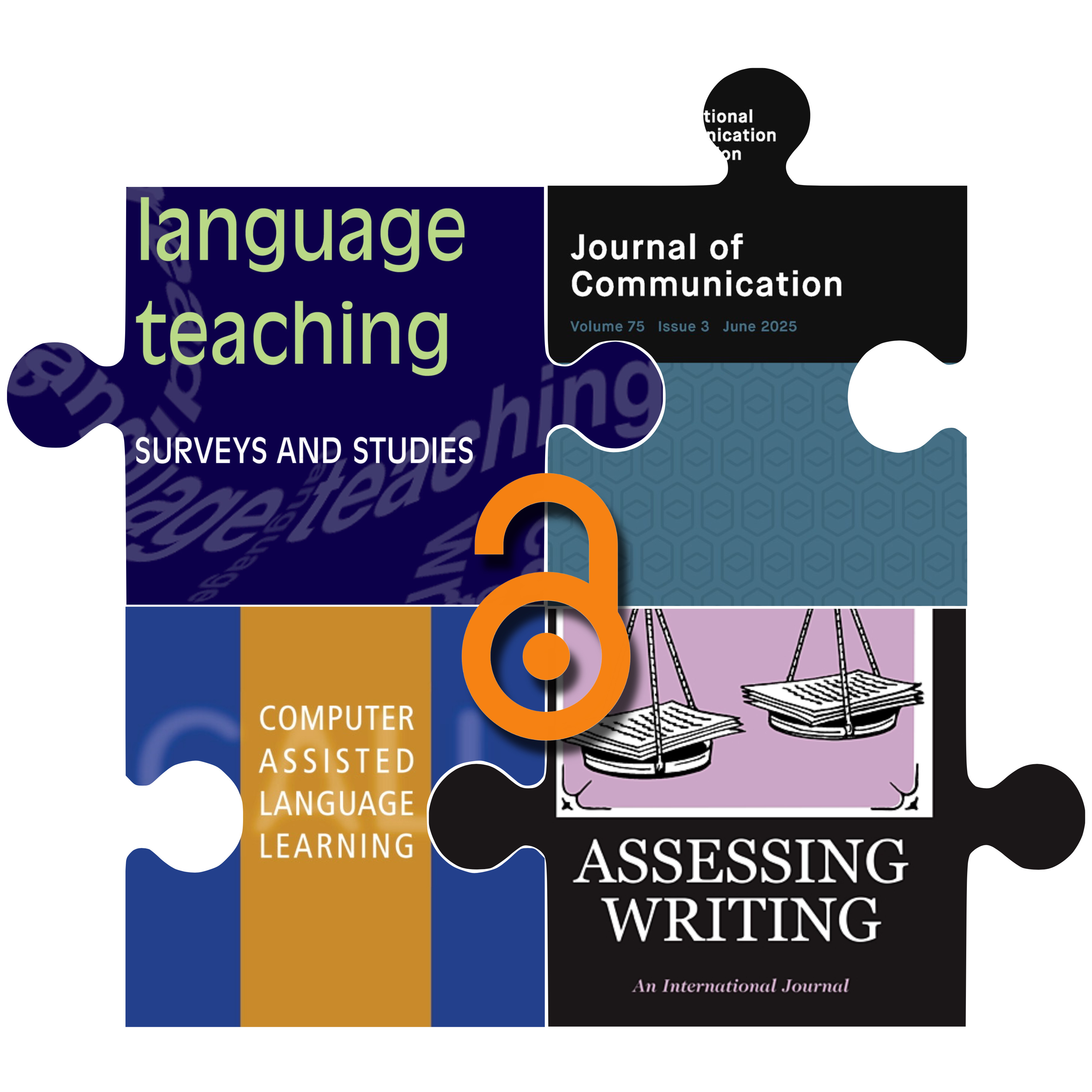
In Conclusion…
How much did you learn about OA practices in linguistics journals? Test your knowledge here!
Question 1: Which of the following best describes ‘Open Access’ in academic publishing?
Question 2: Which funding model is currently most commonly associated with OA journals?
Question 3: Which of the following linguistics journals is ‘fully’ OA, without authors or readers having to pay?
Question 4: True or False: Most linguistics journals published by major for-profit academic publishers offer hybrid OA options.
Question 5: True or False: There is no development towards more equitable OA practices, without relying on fees from authors or readers.
References
All references last accessed on July 11th, 2025.